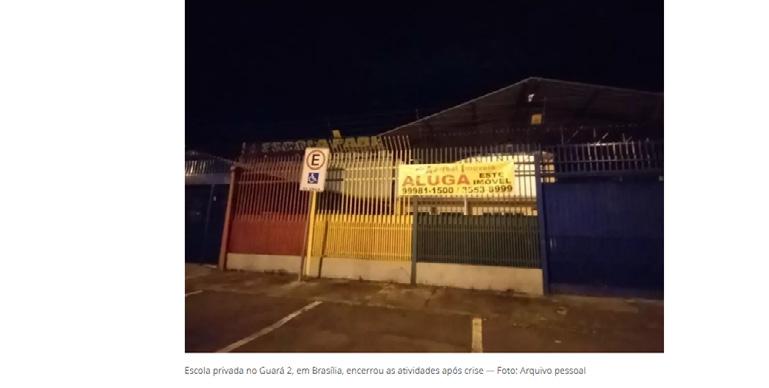
3 minute read
OUR PROJECTS TECHNICAL SUPPORT AND PUBLIC POLICIES Evaluation of the ‘Criança Feliz’ Program
The Programa Criança Feliz (‘Happy Child Program’ / ‘PCF’) is a national program that aims to promote the comprehensive development of children in Early Childhood by strengthening the affective bond and the role of the families in the care and encouragement of children, as well as facilitate access to public services and policies for the families involved.
In 2022, the impact evaluation and implementation of the Program was concluded. The random study was performed using compilations of data that started in 2018, before implementation of the program began in 30 municipalities located in six Brazilian states, monitoring a sample of more than 3,000 children between 2018 and 2021.
The study identified the profiles of the families benefiting from the program, checking, for example, a high incidence of depression amongst the mothers participating in the study. It also identified factors associated with lower infant development results and parental practices that involve the use of violence (shouting, yelling, spanking, slapping).
Due to the Covid-19 pandemic, the program’s main strategy (home visits) was suspended as an in-person practice in the municipalities involved for around 15 months. Meanwhile, through analysis of the implementation study, it was also possible to understand the most pressing challenges in terms of the quality of the execution of the program in its initial stages, without finding statistically significant effects between the intervention and control groups.
The home visits form part of an evidencebased strategy, and few Brazilian public programs, services or policies provide reliable assessments highlighting key elements for action. The real driver for the Foundation and other partners in supporting this and other impact assessments is precisely due to their ability to contribute to the improvement of the strategies designed to promote child development. This allows the policies’ maturing cycles to speed up based upon the production of data and strengthening data to guarantee the rights and full priority of Brazilian Early Childhood, above all for those children in extremely vulnerable situations.
Understanding the effects of the Program is essential to be able to allow for development of the process of continued improvement of the quality of the services and strengthening of the bonds between pregnant women and families with small children.
The assessment is an initiative of the Social and Agricultural Development Ministry and involves partnerships with the Fundação Maria Cecilia Souto Vidigal, Itaú Social, and the United Nations Development Program (UNDP). It is coordinated by the Federal University of Pelotas (UFPel), and participating institutions include the ‘Instituto Humanidades Artes e Ciências Professor Milton Santos’ (‘Professor Milton Santos Humanities, Arts and Sciences Institute’ / ‘UFBA’), the Federal University of ABC, the Federal University of Ceará, the Federal University of Goiás, the Federal University of Western Pará, the Federal University of Pernambuco, and the University of São Paulo.
Avaliação de implementação e impacto do Programa Criança Feliz
Objetivos: promover o desenvolvimento integral das crianças na primeira infância, de zero até os seis anos, através do fortalecimento do vinculo afetivo do papel das famílias no cuidado e estímulo às crianças, assim como facilitar o acesso das famílias atendidas às políticas e serviços públicos.
SOBRE A AVALIAÇÃO incluídos no estudo
Estudo randomizado controlado com acompanhamento de cerca de mil crianças de até 3 anos suas famílias ao longo de três anos, em 30 municípios de seis Estados brasileiros." O objetivo do estudo foi avaliar o impacto do Programa sobre a estimulação da criança no domicílio e seu desenvolvimento cognitivo e psicomotor, além de, avaliar a implementação do Criança Feliz nos Estados/ Municípios que participaram da amostra.
3.242 cuidadores alocados nos grupos: intervenção do PCF (GI; 1.619) ou controle (GC; 1.623). Idade das crianças até 12 meses de idade.
09/2019 a 01/2020 ACOMPANHAMENTO PRESENCIAL (T1) Participantes: 3.008 cuidadores (93% dos incluídos no T0) Idade média das crianças = 19 meses
03/2020 a 06/2021 VISITAS PRESENCIAIS SUSPENSAS em todos os municípios, na maioria entre 03/20 06/21.
Bahia Casa Nova Feira de Santana Irecê Paulo Afonso Serrinha Vitória da Conquista Ceará Caucaia Crato Itapipoca Juazeiro do Norte Morada Nova Sobral Goiás Águas Lindas de Goiás Luziânia Novo Gama Pará Altamira Bragança Breu Branco São Miguel do Guamá Tailândia Pernambuco Abreu Lima Camaragibe Caruaru São Lourenço da Mata Serra Talhada São Paulo Francisco Morato Limeira Piracicaba Sumaré Taboão da Serra
2020 2021 5 RODADAS DE ENTREVISTAS POR TELEFONE PARA ACOMPANHAMENTO
10/2021 01/2022 3º ACOMPANHAMENTO PRESENCIAL (T3) Participantes: 2.594 cuidadores (80% dos incluídos no T0) Idade média das crianças = 43 mese









